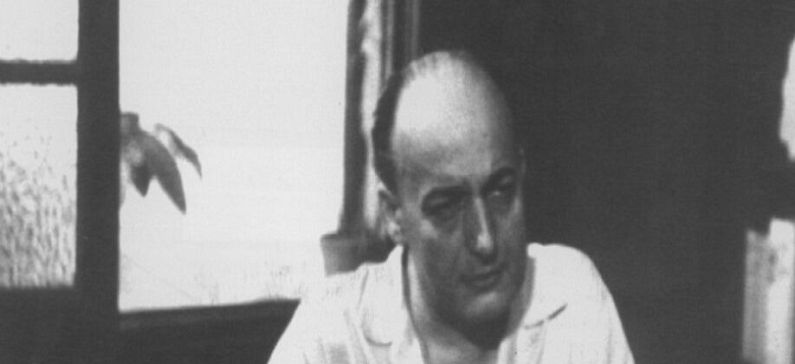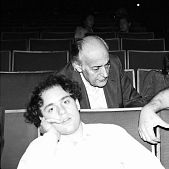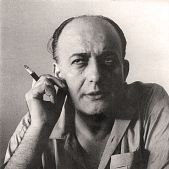
Ambassador of Greek surrealism in poetry
Nikos Gatsos is the ambassador of Greek surrealism in poetry, a lyricist and translator of theatrical plays.
He was born in 1911 in Asea inArcadia, where he finished primary school.
He later studied at the School of Philosophy of the University of Athens.
In 1943, he successfully published his single long poem Amorgos, establishing it as one of the most influential surrealistic poems.
He later published three more poems, Elegeio in 1946, The Knight and Death in 1947 and Song of Old Times in 1963.
After World War II, Gatsos worked for the Greek British Review as a translator and also for the Greek Radio Television as a translator, arranger and radio director.
Moreover, he started writing lyrics for the music of Manos Hatzidakis and worked together with major composers, like M. Theodorakis and St. Xarhakos. His lyrics are popular among Greeks and some of his most favourite songs are Immortality, Rebetiko, Achipelagos, You took the long way, Pornography, Folk Market, Litte Rallou, One Language One Homeland, If you Remember my Dream and Paper Moon.
He also became involved in translating theatrical plays for the National Theatre of Greece, the Art Theatre and the Folk Theatre.
In 1987, he was honoured with the Municipality of Athens Award and in 1991 he was elected corresponding member of the Academy of Barcelona.
Nikos Gatsos died on May 12th, 1992 and his remains were buried in his homeland.
TIPS...
-
He wrote the lyrics for the Manos Hatzidakis’s score of Elias Kazan’s film America America.
- During his life, Amorgos was the only poetic collection published in 308 copies during the years of Occupation. He had authored the poem in one night following the method of automatic writing.
-
His song It’s Long Ago was banned by Metaxas regime.












Κ. Καλογιανωβ
-04/04/2020 7:51 pm
Χαρικα παρα πολυ που διαβασα την ιστορια, για την ζωη του μεγαλου μασ Εθνικου ποιητι ο Διονυσιος Σολωμος,που εμελλε να συνδεσει το ονομα του, με τη συγγραφη του ποιηματος<>,οποιου οι πρωτεσ δυο στροφες,εγιναν ο Εθνικος Υμνος τησ Ελλαδας!!